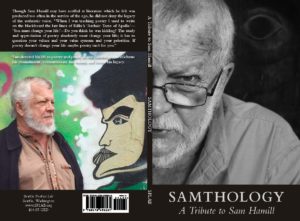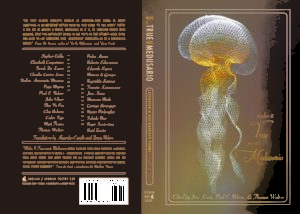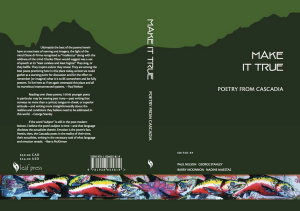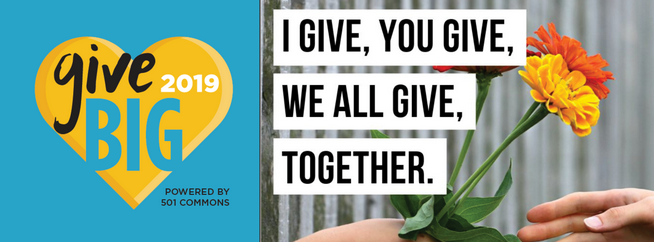
Give BIG is coming! Save the date for early giving! Give Big is Wednesday May 8th, but you can schedule your gift early starting Tuesday April 23rd!
By scheduling your gift early, it’s easy to donate and you’ll give SPLAB some momentum for this once-a-year fundraising opportunity.
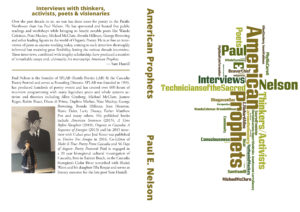 SPLAB has been at it for 25 years and celebrated last December with the release of our first book of interviews American Prophets. We continue to do interviews, our Cascadia Poetry Festival in Anacortes starting May 9 honors Sam Hamill (& the launch of two new anthologies: MmM and the Samthology) and registration for our 13th August Poetry Postcard Festival starts July 4. We squeeze a LOT out of every dollar, so Give Big!
SPLAB has been at it for 25 years and celebrated last December with the release of our first book of interviews American Prophets. We continue to do interviews, our Cascadia Poetry Festival in Anacortes starting May 9 honors Sam Hamill (& the launch of two new anthologies: MmM and the Samthology) and registration for our 13th August Poetry Postcard Festival starts July 4. We squeeze a LOT out of every dollar, so Give Big!
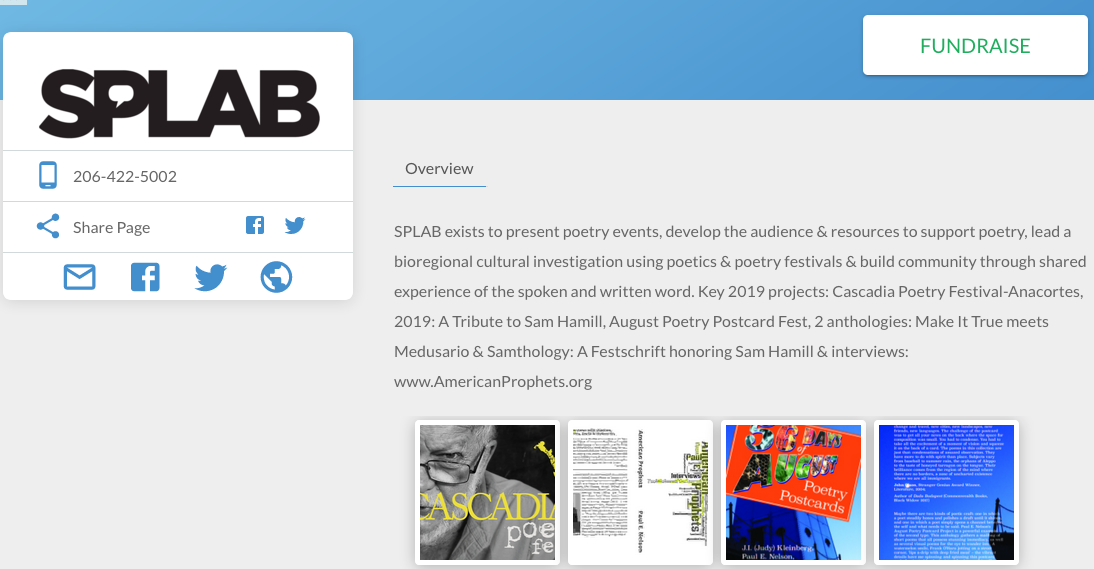
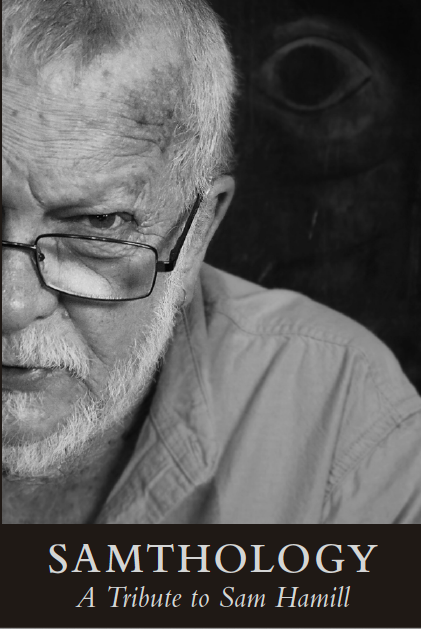
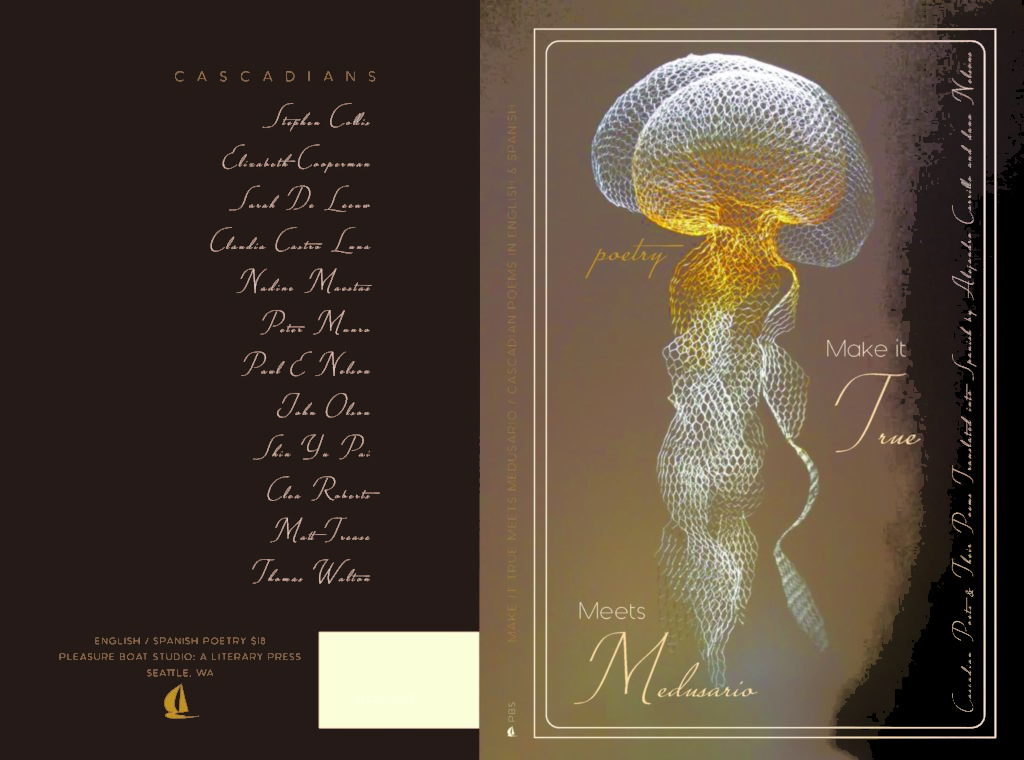

About Splabman
Poet & interviewer Paul E Nelson founded SPLAB (Seattle Poetics LAB) & the Cascadia Poetry Festival. Since 1993, SPLAB has produced hundreds of poetry events & 600 hours of interview programming with legendary poets & whole systems activists including Allen Ginsberg, Michael McClure, Joanne Kyger, Robin Blaser, Diane di Prima, Daphne Marlatt, Nate Mackey, George Bowering, Barry McKinnon, José Kozer, Brenda Hillman & many others. Paul’s books include American Prophets (interviews 1994-2012) (2018) American Sentences (2015) A Time Before Slaughter (2009) and Organic in Cascadia: A Sequence of Energies (2013). Co-Editor of Make It True: Poetry From Cascadia (2015), 56 Days of August: Poetry Postcards (2017) and Samthology: A Tribute to Sam Hamill (2019) Make it True meets Medusario (2019), he’s presented poetry/poetics in London, Brussels, Nanaimo, Qinghai & Beijing, China, has had work translated into Spanish, Chinese & Portuguese & writes an American Sentence every day. Awarded a residency at The Lake, from the Morris Graves Foundation in Loleta, CA, he’s published work in Golden Handcuffs Review, Zen Monster, Hambone, and elsewhere. Winner of the 2014 Robin Blaser Award from The Capilano Review, he is engaged in a 20 year bioregional cultural investigation of Cascadia and lives in Rainier Beach, in the Cascadia bioregion’s Cedar River watershed.

 SPLAB has been at it for 25 years and celebrated last December with the release of our first book of interviews American Prophets. We continue to do interviews, our Cascadia Poetry Festival in Anacortes starting May 9 honors Sam Hamill (& the launch of two new anthologies: MmM and the Samthology) and registration for our 13th August Poetry Postcard Festival starts July 4. We squeeze a LOT out of every dollar, so Give Big!
SPLAB has been at it for 25 years and celebrated last December with the release of our first book of interviews American Prophets. We continue to do interviews, our Cascadia Poetry Festival in Anacortes starting May 9 honors Sam Hamill (& the launch of two new anthologies: MmM and the Samthology) and registration for our 13th August Poetry Postcard Festival starts July 4. We squeeze a LOT out of every dollar, so Give Big!



